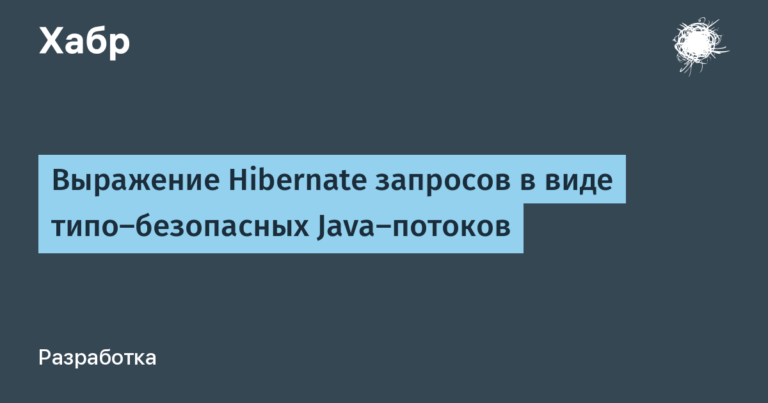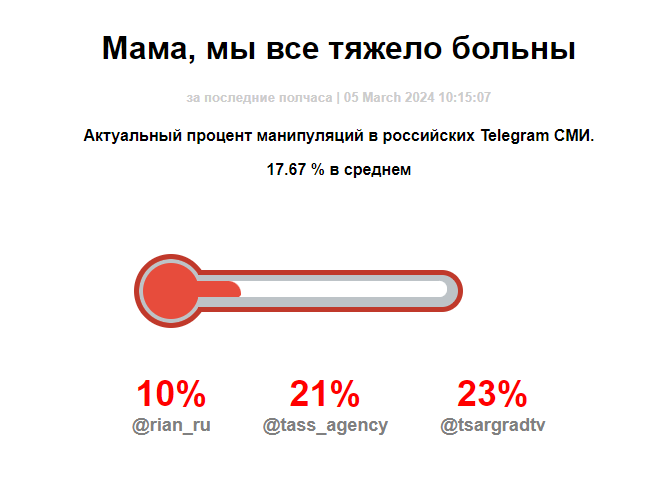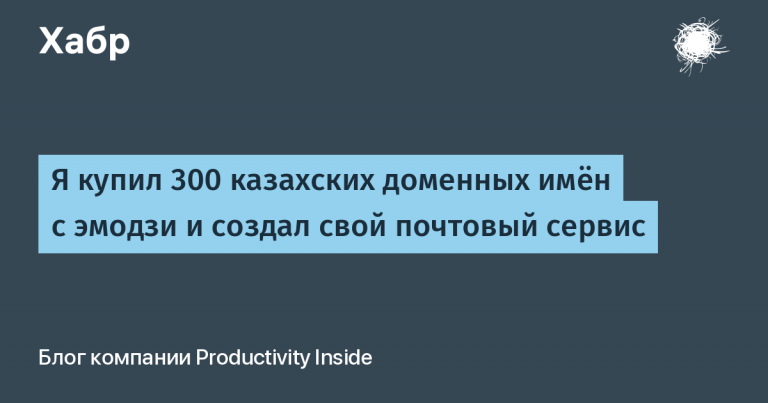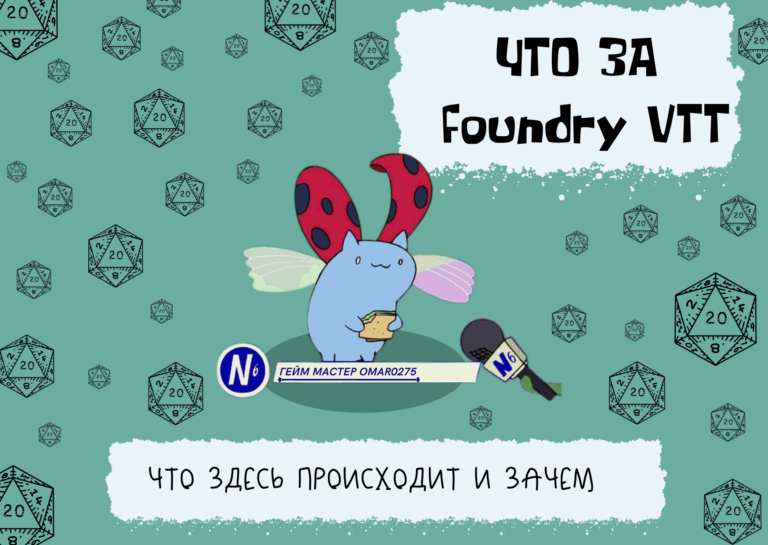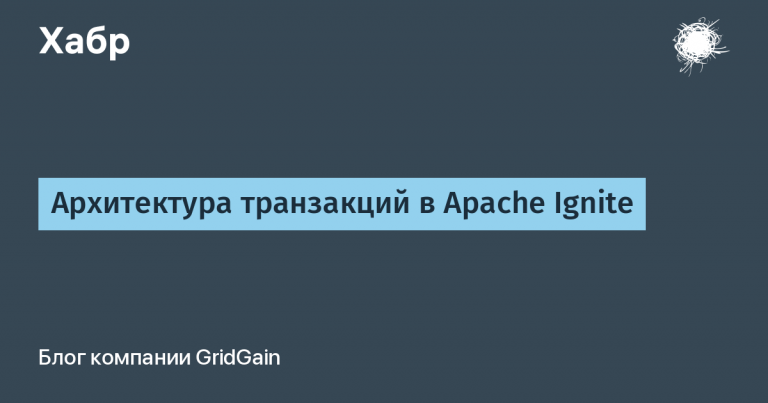A Chrome extension to alert you about surveillance
Hello, Habr! Roskomsvoboda again with good news.
Skillful hands of our team have developed an extension for the Google Chrome browser Censor Tracker and launch his open sail public beta testing.
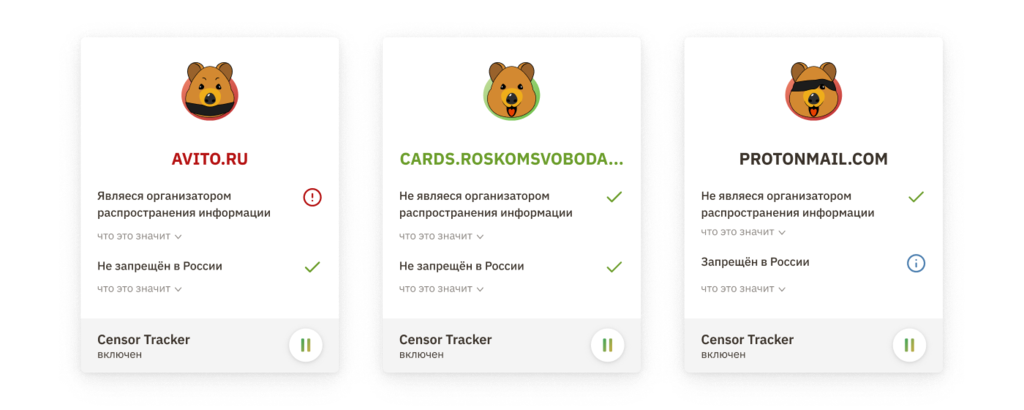
For several months we checked the work of Censor Tracker with the help of our friends, colleagues and loyal subscribers, discussed and corrected errors that arise and are now ready to present our extension to the general public.
So, what Censor Tracker can do:
1. Search for blocking sites that are (will be) carried out by Roskomnadzor under the law “On the Sovereign Internet” in Russia.
The Law on “Sovereign Internet” (N 90-FZ “On Amendments to the Federal Law” On Communications “and the Federal Law” On Information, Information Technologies and the Protection of Information “) provides for the isolation of the Russian segment of the Internet and the creation of a national Internet routing system. traffic. It was adopted on May 1, 2019, entered into force on November 1, 2019.
2. Warn if you visit sites from the ARI registry.
ORI registry (Organizers of the Dissemination of Information) – a list of sites that were obliged to monitor users and drain to government agencies on demand all the content of correspondence, calls and all other actions and interactions of users on their resources.
Speaking in the language of Russian legislation, the “Organizer of information dissemination on the Internet” is obliged to store on the territory of the Russian Federation:
- information on the facts of reception, transmission, delivery and (or) processing of voice information, written text, images, sounds, video or other electronic messages of Internet users and information about these users within one year from the date of completion of such actions;
- text messages of Internet users, voice information, images, sounds, video and other electronic messages of Internet users up to six months from the end of their reception, transmission, delivery and (or) processing. The procedure, terms and volume of storage of the information specified in this subparagraph are established by the Government of the Russian Federation.
The organizer of the dissemination of information on the Internet is obliged to provide this information to the authorized state bodies carrying out operational-search activities or ensuring the security of the Russian Federation, in cases established by federal laws. “
If a site that is in the ARI registry has publicly refused to track users and cooperate with government agencies, Censor Tracker will also inform you about this. Other sites in this registry can merge session keys from traffic, and some are already doing this.
3. Unblock sites that are now in the registry of prohibited.
Registry of prohibited sites – a list of sites containing, in the opinion of Russian government agencies, information prohibited in Russia.
On the day of the entry into force of the Unified Register of Banned Sites (November 1, 2012), RosKomSvoboda was created to resist illegal blocking and to fight unreasonable censorship on the network.
The register is managed by Roskomnadzor, but other departments (the Prosecutor General’s Office, the Ministry of Internal Affairs, the Federal Tax Service, the Federal Drug Control Service, the Ministry of Telecom and Mass Communications, Rospotrebnadzor, Rosalkogolregulirovanie, Rosmolodezh) can also replenish it, including extrajudicially.
Over the past six months, 17-18 thousand new sites were added to the register every month. Most of them were blocked indeed for violating Russian law, but there were also precedents that went beyond common sense. For example, websites of international non-governmental organizations (here and here), forum with anecdotes, Crunchbase platform, Services email and even state site Ukraine.
Why we do it:
1. We are getting ready to confront the approaching sovereign Runet.
Recall that the law on the sovereign Runet entered into force on November 1, 2019, and one of its innovations is that Roskomnadzor will now implement “centralized management” of the Runet. The main initiator of the adoption of this law – Andrey Lipov – now holds the post of head of Roskomnadzor and, apparently, will do everything possible to implement his legislative initiative. So, in the document developed by the Ministry of Digital Science in April obliges operators to immediately block prohibited Internet resources if dissemination organizer refuses to interact with state agencies for the collection, storage and issuance of user data, although initially this document was supposed to relieve telecom operators from responsibility for non-blocking prohibited sites.
According to other authors of the “stable Internet” Andrei Klishas and Lyudmila Bokova, the law is aimed at protecting the Runet from the danger of being disconnected from the outside, but many experts and netizens perceive it as a law to isolate the Russian segment of the Internet from the World Wide Web. Although users have not noticed significant changes in the operation of the network since the law came into force, and planned for this year “exercises to protect against threats to the stability of the Internet” passed or malfunctioning or transferred at a later date, we are still realists and want to prepare in advance for a possible worst-case scenario.
2. We believe that information about censorship should be public and debatable.
That is why we constantly monitor the register of banned sites and the register of ORIs and in every possible way oppose dubious legislative initiatives that are aimed at tightening censorship on the Internet.
3. We want to know what they will try to hide from us in the future.
In principle, we already find out, but we want to do it centrally and preventively, to know in which regions which content is banned and which providers promote censorship on the Runet.
How Censor Tracker works:
1. All requests are redirected to HTTPS, and then, if the site is blocked, the connection is reset and in chrome.webRequest.onErrorOccured an appropriate error is returned.
- If a site is forcibly redirecting back to HTTP, then a circular redirection occurs and therefore such sites are listed as ignored.
- If the site has problems with the certificate, then the site is also added to the ignored list due to the impossibility of correct processing.
2. If the connection is reset, the site is logged on the backend and added to the PAC of the extension.
- The backend is sent the IP address from which the site is unavailable and the website with accessibility problems.
- Every n-hour, a task is launched that checks for IP / website pairs and finds out the region of the owner of the IP, and then the hash of the IP address is saved and the address itself is deleted.
- Then resources are identified that are not available for different users from the same region or provider and are entered into the corresponding database.
Our next steps:
- Launching the Mozilla Firefox browser extension
- After a successful test in Russia, go outside the country to identify, list and bypass non-registry locks.
How can you help us?
- Install the extension and use it. Detailed installation instructions lie here…
- Audit our code.
- Join development…
- If you have a wealth of experience with VPN or proxy content, we’d love to get in touch for expert advice.
- Low cost server space and traffic will not be superfluous either. If you know where to get it, we will be glad to advice.
- Do you want to launch in a country other than Russia? Let’s talk.
In case you missed:
Latest current build:
https://github.com/roskomsvoboda/censortracker/releases
Version from master:
https://github.com/roskomsvoboda/censortracker
Extension backend:
https://github.com/roskomsvoboda/censortracker_backend
Chat room for questions, discussions, tips and brilliant ideas:
https://t.me/CensorTracker_feedback
